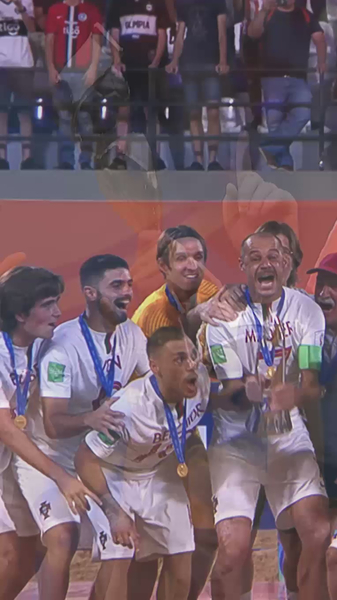Keep our competitions iconic
Ensure the success of our iconic competitions
FIFA’s iconic competitions inspire billions of football fans and provide opportunities to have a wider positive social and environmental impact.
By the global nature of the tournaments it organises, FIFA strives to set the benchmark in the delivery of global sporting events as an inspiration for all audience groups, from fans attending the competition to the general public.
Deliver first-class conditions for participating teams and referees
The Bureau of the FIFA Council approved a new International Match Protocol, created through an extensive consultation process with the six confederations and stakeholder representatives. The procedures provide important safeguards for the health and safety of players and delegates while facilitating a return to play.
With the COVID-19 pandemic denying the possibility of providing first-class conditions for players, coaches and referees to showcase their skills to global audiences, several competitions planned to be delivered in 2020 were either postponed or cancelled, with
the host countries of these tournaments granted rights to hold the respective future editions.
A new model for the delivery of FIFA tournaments brings all core tournament management areas to be managed in-house, to benefit the delivery of the commercial programme and to be at the service of FIFA’s member associations in an advisory capacity.
Create a unique experience for fans and global audiences
In the absence of FIFA competitions during the pandemic, FIFA looked to the contemporary digital landscape to better understand fans’ expectations and design unique new experiences to meet them.
Development began on a digital customer experience management programme to drive fan engagement on FIFA-owned platforms, as well as a customer relationship management tool, which was trialled during The Best FIFA Football Awards in December 2020.
On site, the FIFA World Cup Qatar 2022™ will facilitate fan engagement like never
before including the opportunity to attend more than one match per day – a situation made possible by the compact nature of the tournament in November-December 2022.
Deliver high-value programmes for commercial partners
To help strengthen cooperation between broadcasters and Commercial Affiliates, FIFA has engaged in several high-value programmes in connection with many of its tournaments. To support the delivery of the FIFA World Cup 2022, FIFA accepted the proposal of the Qatar Football Association to host a new pan-Arab tournament – the FIFA Arab Cup™ – in December 2021, with 22 national teams scheduled to take part.
The bidding process for the FIFA Women’s World Cup 2023™ concluded with Australia and New Zealand being awarded the hosting rights, making it the first-ever tournament with co-hosts representing different confederations. The procedure for determining the hosts was conducted in a clear and transparent manner, with documentation and voting results published online. The host city selection process began with a series of virtual workshops involving 12 candidate cities in both countries. Meanwhile, the venue selection processes have also started for the FIFA World Cup 2026™.
Deliver sustainable tournaments and create a strong legacy
FIFA’s released the Sustainability Strategy for the FIFA World Cup Qatar 2022™, which covers critical topics such as workers’ welfare, human rights, non-discrimination and environmental protection. The strategy is aligned with the UN’s Sustainable Development Goals, and its delivery received special recognition from the Qatar Green Building Council in March 2020.
Five FIFA World Cup Qatar 2022™ stadiums achieved 4- or 5-star Global Sustainability Assessment certification, fulfilling FIFA’s requirements for sustainable construction, while the FIFA Club World Cup Qatar 2020™ was delivered following sustainable event management principles, serving as a system test for the FIFA World Cup.
FIFA also strengthened its collaboration with external stakeholders on diversity and anti-discrimination measures, ensuring inclusivity and tournament-based accessible infrastructure and services, while taking crucial steps to set up an event grievance mechanism. In addition, the first Sustainability Progress Report was published and procurement integrated the Sustainable Sourcing Code.
Sustainability and human rights-related criteria also formed part of the FIFA Women’s World Cup 2023™ bidding evaluation, while UNICEF and the Centre for Sport and Human Rights are among the stakeholders involved in defining criteria related to the FIFA World Cup 2026™ host cities.

